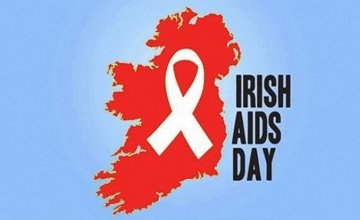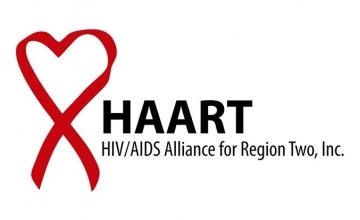
Read our 2024 annual report

Knowledge Hub
36 years responding: Irish AIDS Day

In recognition of Irish AIDS Day on 15 June, Concern’s global health and HIV & AIDS programme advisor Breda Gahan speaks of how far Ireland has come since the AIDS epidemic crisis in the 80's and how much further it still must go.
Ireland’s history with AIDS
It’s now 36 years since the first diagnosis of AIDS in Ireland back in 1982. At the time, I was still working as a nurse-midwife in Dublin and I remember hearing the news of a new “killer disease” that was emerging and the terrible fear and stigma surrounding it.
When I was in St, James Hospital in Dublin, it was affecting people who had become infected with HIV through either their haemophilia treatment, injecting drugs through shared contaminated needles or gay men and members of the heterosexual population by having unprotected sex with a HIV positive person.
At this time in Ireland and up until the early-mid 1990’s, everyone who became infected with HIV developed AIDS and died. In 1989, the life expectancy for someone living with HIV was approximately just 12–18 months. There was and still is no cure.
Concern’s international approach
HIV and AIDS was spreading worldwide and was the original focus for Concern’s work in Uganda. Once there, Concern provided financial support to the outreach programme of the Medical Missionaries of Mary who were assisting people affected by HIV and AIDS in Masaka and Rakai districts between 1987 and 1990. Later Concern, local partners and home care volunteers expanded the HIV response programme to other priority districts affected by the epidemic.
A global pandemic
By the end of 1985, every region in the world had reported at least one case of AIDS. By the end of 1986, 85 countries had reported 38,401 cases of AIDS to the World Health Organization (WHO).
In 1988, World AIDS day was recognised for the first time, designated by the WHO and the United Nations to raise awareness and to increase HIV and AIDS education for prevention. The theme was “A world united against AIDS”.
In Sub-Saharan Africa, by 1998, the number of women living with HIV exceeded that of men, and the impact of AIDS was having devastating social and economic impacts on affected families, communities and country development efforts.
In 1999, the WHO announced that AIDS was the fourth biggest cause of death worldwide and number one killer in Africa. An estimated 33 million people were living with HIV and 14 million people had died from AIDS since the start of the epidemic.
Effective treatment
Effective HIV treatment first became available in 1994-95, with the introduction of highly active antiretroviral treatment (HAART).

HAART, first rolled out in Ireland in 1996-97 and was quickly effective in saving the lives of those living with HIV, and helping to lift the darkness of the previous fifteen years. It’s now over twenty years with HAART providing a lifeline for people living with HIV locally and globally, but it is still not a cure. Compliance with taking the HAART medication can render a person HIV undetectable, and they are unlikely to pass the virus on to others.
Rollout of treatment in Africa and poorer countries has been slower, but today globally, 54% of adults and 43% of children living with HIV are currently receiving HAART. Irish Aid is contributing through support to The Global Fund and UNAIDS. Concern, along with our Dochas colleagues are advocating for expansion of treatment to people living with HIV who are being left behind, often the poorest and most marginalised.
Today’s figures
Globally in 2016, there were approximately 36.7 million people living with HIV with 1.8 million people becoming newly infected.
In Ireland in 2017, 504 new diagnosis of HIV was recorded and the latest data from the Health Protection Surveillance Centre (HPSC) reports a total of 212 new HIV notifications for 2018.
Prevention, prevention, prevention
More needs to be done on HIV education and prevention, and male condoms still offer the best protection against sexually transmitted infection (STIs) and HIV transmission in Ireland and globally, if used consistently and correctly every time. It would be a positive step to remove VAT on condoms, and in turn help protect health and lives in Ireland.
Pre Exposure Prophylaxis (PrEP) has been available in Ireland since the end of 2017. It is a medication taken by HIV-negative people to reduce the chance of getting HIV from having sex without a condom and from sharing needles or equipment to inject or use drugs.
ACT UP Dublin is lobbying for PrEP to be made available for free through the HSE, in an effort to reduce the current situation of “1 HIV diagnosis every 18 hours” and globally, efforts are now moving towards ‘Combination Prevention’ efforts.
As we mark Irish AIDS Day, it’s important to acknowledge that HIV transmission is not over and we can all help support to stop it. Be informed, get tested, know our status and protect others from HIV infection.
More information
If you require additional information or assistance, please see below:
- The HSE HIV and Sexual Health helpline is a confidential free phone helpline on 1800 459 459 from Monday to Friday between 9:30 am and 5:30 pm
- You can email the HSE at any time on helpline@hse.ie
- See HIV Ireland for countrywide information


